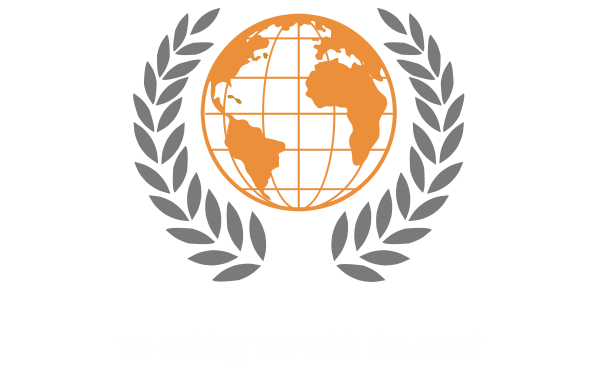Introduction
Meeting a dealer of pre-owned cars can be exciting, but it’s also a moment when you need to keep your focus. You’re about to make a big decision that affects your daily life, money, and peace of mind. Whether you’re buying your first car or switching to something more reliable, the dealer conversation matters. Asking the right questions helps you dig deeper than the sticker price, giving you a clearer picture of the vehicle’s history, condition, and long-term costs.
Without a game plan, it’s easy to miss red flags or forget something important during the conversation. That’s where this list of questions comes into play. They aren't meant to make things tense. They're here to give you more confidence and put you in control of the conversation. When you walk away with answers, not guesses, you have a better shot at making a choice that fits your budget and your lifestyle.
Understanding Vehicle History
One of the most important things to learn from a dealer of pre-owned cars is the history of the vehicle. A car might look clean and run fine during a short test drive, but that’s not the full picture. Past use, accidents, and how well it’s been taken care of over time can show whether the car will hold up in the months ahead. If the history is patchy or the dealer can’t answer simple questions, it’s a warning sign to take seriously.
Here are a few questions that can help bring the vehicle history into focus:
- How many previous owners has this car had?
- Was it used for personal driving, business, or rentals?
- Do you have a full maintenance and service log?
- Has the vehicle ever been involved in a wreck, flood, or other damage?
- Were parts replaced with manufacturer originals or third-party parts?
A good maintenance record is like a health report card for the car. If the oil was changed regularly and major repairs were handled on time, that’s a good sign. On the other hand, missing records or vague answers could mean the vehicle skipped some upkeep along the way.
Let’s say you’re looking at an SUV that seems perfect for weekend trips and your daily errands. It looks great, starts right up, and drives okay. But then you find out it was once in a rear-end collision and the frame was rebuilt. Even if everything runs smoothly now, that kind of damage can affect alignment, tire wear, and the resale value later on. These are the details that help you decide if a vehicle is a good long-term match or a short-term risk.
Current Condition and Inspection
Vehicle history is important, but so is how the car is doing right now. Even if it’s passed previous inspections, things wear out, get missed, or fall out of line with time and use. That’s why asking what’s been looked at recently and what might need attention soon really matters.
You’re not just checking for big problems. You’re trying to get a full picture of what's already been done, what still needs work, and what you might need to budget for once the car is yours.
Be sure to ask the dealer:
- What is the current mileage and when was the last service?
- Have the brakes, tires, and battery been inspected or replaced?
- Can I see a multi-point inspection report?
- Are there any dashboard warning lights on or recent repairs?
- Has any rust, corrosion, or water damage been found?
A written inspection report by a trained technician adds another layer of trust, even if everything looks good on the surface. It shows whether the vehicle’s major systems like brakes, engine, steering, and suspension are functioning without problems.
It also helps to ask when things like the timing belt, tires, or brake pads were last changed. These can bring extra costs down the line if they're about due for replacement. And if a dealer casually waves off minor issues, think twice. Small things like a chipped windshield or uneven tire wear might seem harmless now but could turn into bigger concerns if ignored.
Starting with these details puts you in a solid place when it’s time to take a test drive or decide whether to move forward. It's better to ask the hard questions now than wish you had after the car's in your driveway.
Test Drive and Performance: Questions to Ask a Dealer of Pre-Owned Cars
Once you've covered the car's background and condition, it's time to get behind the wheel. A test drive isn't just about comfort. It's your chance to see how the vehicle performs under different situations and to ask some key questions based on how it feels in motion.
Take your time with this part. Drive on both city streets and highways if possible. Notice how the car accelerates, brakes, turns, and handles rough patches in the road. If something feels off, even just a little, it's better to ask about it now than deal with it later.
Here are some useful questions to ask during and after your test drive:
- Does the steering feel responsive and smooth?
- Are the brakes working without any noises or delay?
- How does the engine sound as you pick up speed?
- Does the transmission shift cleanly without hesitation?
- Are there any dashboard lights coming on?
- How does the car ride over bumps or potholes?
- Is the AC, heater, and sound system working properly?
Pay attention to any vibrations, pulling to one side, or clunky gear changes. These can point to brake or suspension issues, or something with alignment. If there’s a delay when shifting between gears or a loud rev before moving forward, that might signal transmission wear. Don’t dismiss small signals. For example, if you hear a light thumping sound every few seconds, that could be a worn-out tire or even a bad wheel bearing.
A test drive can also help you figure out if the car’s size and layout match your personal comfort. Can you see clearly out the mirrors? Is the driver's seat comfortable after a few minutes? Are the controls easy to reach and use? These day-to-day details matter when this will be your ride for years to come. Driving it is half the decision. How it makes you feel behind the wheel is the rest.
Financing and Warranty Options: What to Ask a Dealer of Pre-Owned Cars
You’ve looked under the hood and tried it on the road, but the next step can affect your budget just as much as the car itself. That’s why it’s worth having a clear conversation about financing, included protections, and what happens after you sign the paperwork.
Here are a few topics to bring up at this stage:
1. What financing options are available and what are the terms?
2. Do I need to use your in-house financing or can I use my own bank or lender?
3. Are there penalties for early repayment?
4. Is there any form of warranty included with the vehicle? If so, what does it cover and for how long?
5. Can I purchase an extended warranty?
6. What’s your return or exchange policy, if any?
7. Is roadside assistance offered as part of the purchase or warranty?
8. Do you offer any after-sale service plans or discounted repairs?
These questions help you look beyond the monthly payment. A lower upfront cost might feel like a good deal, but if the financing terms are heavy with fees or the interest rate is high, you could wind up paying more in the long run. Also, without some type of coverage, even short-term, you're on your own for any immediate fixes that pop up.
Sometimes, even reputable used cars can develop problems just a few weeks after leaving the lot. Knowing the return policy or whether there's a grace period gives you peace of mind if something unexpected happens. And be gentle but clear in asking about extra charges, like document fees or add-ons you didn’t request. Everything should be upfront.
A conversation about financing and warranties doesn’t need to be complicated. Just stay steady, ask the questions, and walk away with all the info you need to make a sound decision.
Leave Confidently with the Right Ride
Walking into a dealership and choosing a used car shouldn't feel like guesswork. If you ask the right questions from the start, you're less likely to run into regrets later. Taking the time to learn about the car’s past, check out its condition, and really test how it drives can give you a full picture. Layer in smart questions about financing, warranties, and post-sale services, and you’ll be setting yourself up for a smoother ride ahead.
Buying from a dealer of pre-owned cars in Richmond means you’ve got resources around you. But not every dealership will offer the same level of detail, and it’s up to you to dig deeper. Ask with confidence, stay curious, and trust your own reactions during the test drive. A little preparation at the start can save you time, money, and stress after the deal is done.
If you're ready to make your next move toward a reliable vehicle, we’ve got you covered at United Auto Sales. Whether you’re after something compact or built for the long haul, start by checking out our inventory with a trusted dealer of pre-owned cars in Richmond and find the ride that fits your lifestyle.



